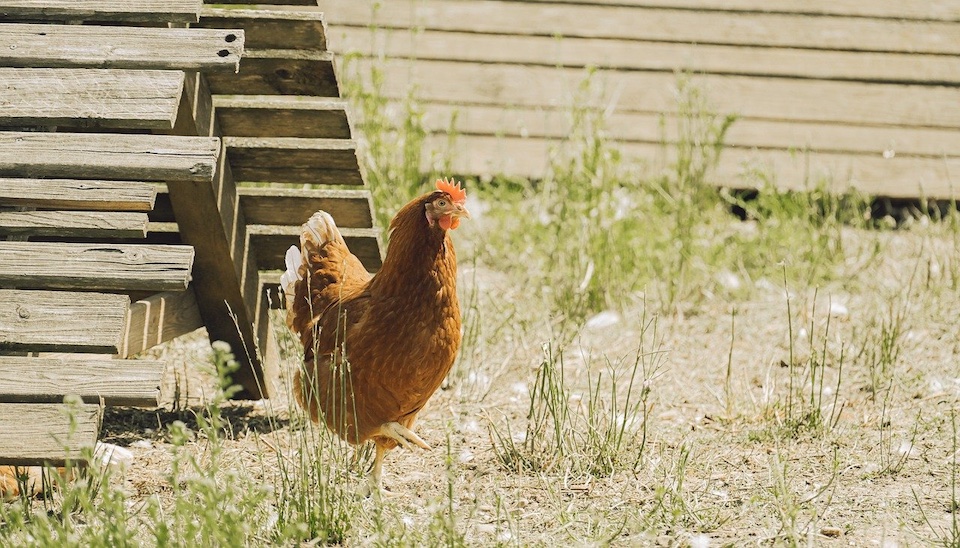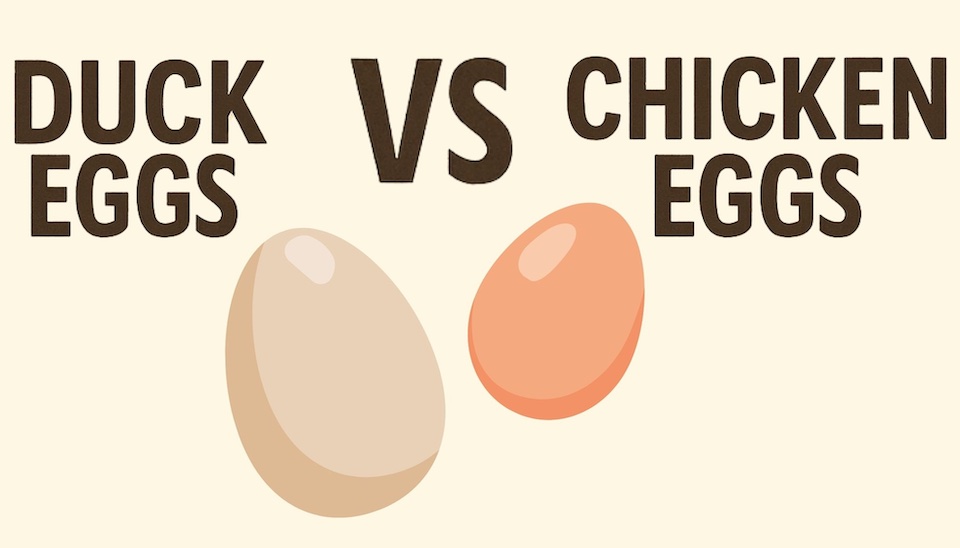What Age Do Chickens Start Laying Eggs?
What Age Do Chickens Start Laying Eggs?
There's nothing quite like the joy of collecting fresh eggs from your own backyard.
Chickens typically start laying eggs between 15 and 25 weeks of age, with the average around 18 weeks. However, the exact age can vary depending on the breed, diet, and environment of each chicken.
With the right care, your hens will provide you with up to 250 eggs in their first year. Consistent egg production is a clear sign of happy, healthy hens.
To help your flock reach their full potential, it's essential to provide the right nutrition, a comfortable environment, and quality equipment from the start.
At Dine-A-Chook, we're committed to supporting you with our Australian-made poultry feeders, drinkers, and chicken nesting boxes designed to keep your hens thriving and laying eggs!
Key Takeaways
- Chooks typically start laying eggs between 15 and 25 weeks of age
- A well-fed, healthy hen can produce up to 250 eggs in her first year - read what to feed baby chicks
- Consistent egg production indicates happy and healthy chickens
- Proper nutrition, including omega-3 fatty acids, boosts egg quality
- Quality feeders, drinkers, and nesting boxes from Dine-A-Chook support your flock's health and productivity
When Do Chickens Start Laying Eggs?
Most hens will lay their first egg between 15 and 25 weeks of age, but this can vary depending on the breed, environment, and individual bird.
This exciting milestone signals the start of a productive period where hens can lay an egg almost daily. Being prepared for this phase ensures your chooks have everything they need to lay successfully from day one.
Signs Your Chicken Is Ready to Lay Eggs
Wondering if your pullets are about to start laying?
Here are some telltale signs your chook is reaching laying age:
- Mature Appearance: Compare your hen to others. Does she look like an adult? A full-grown size and mature feathers indicate she's nearing laying age.
- Weight Gain: An increase in weight around the abdomen is a good sign she's getting ready to lay.
- Reddening Comb and Wattles: The comb, wattles, and vent (where the eggs come out) become larger and take on a deeper red hue.
- Softening Pelvic Bones: The area between the pelvic bones and breastbone becomes softer and more flexible to allow eggs to pass.
- Squatting Behaviour: She may start to squat more when you approach, a submissive behaviour indicating sexual maturity.
- Nesting Activity: Preparing or showing interest in nesting areas suggests she's ready to lay. She might rearrange bedding or spend more time in the nesting box.
So if your chooks are healthy, happy, and looking mature, get the toast ready each morning for some beautiful fresh poached eggs!
Factors Influencing Egg Laying Age
Breed Differences
Different chicken breeds mature at varying rates.
Breeds like Australorps and Leghorns are known for early and prolific egg laying, often starting as early as 16 weeks. Heavier breeds like Orpingtons and Sussex may begin laying a bit later, around 22 to 24 weeks. Choosing the right breed is crucial for your egg production goals and climate.
For more insights, check out our article on the best egg-laying chickens.
Nutrition and Diet
Proper nutrition is vital for early and consistent egg production.
A balanced diet rich in proteins, calcium, and omega-3 fatty acids supports healthy development and egg quality. Omega-3 enriched eggs offer added health benefits for both hens and humans. Learn more about the importance of omega-3 in eggs from Australian Eggs.
Feeding your chooks high-quality layer feed ensures they get the necessary nutrients. Our Dine-A-Chook Poultry Feeders provide clean, accessible feed while reducing waste—a win-win for you and your hens.
Environment and Housing
A comfortable and stress-free environment encourages hens to start laying sooner. Adequate space, clean and cosy nesting boxes, and protection from predators are essential.
Our Australian-made chicken nesting boxes provide a safe and comfortable place for your hens to lay their eggs. Ensuring your coop has good ventilation and is kept clean will promote the overall health of your flock.
Light Exposure
Chooks need sufficient light to stimulate egg production.
Providing at least 14 hours of light per day can encourage hens to start laying, especially during the shorter days of winter.
Natural sunlight is best, but supplementing with artificial light in the coop can help maintain egg production year-round.
Maximising Egg Production
Proper Feeding Practices
Consistent access to nutritious food boosts egg production.
Using an efficient feeder keeps the feed clean and minimises spillage. Our poultry feeders are designed to meet these needs, ensuring your hens are well-fed and healthy. Don't forget to offer shell grit to aid digestion and provide extra calcium for strong eggshells.
Remember to keep the protein up as it is essential for egg production. Choose a good chicken pellet feed which is supplemented with protein such as dried mealworms
Hydration Is Key
Ample clean water is just as important as food.
Dehydration can quickly affect egg laying and overall health. Invest in reliable poultry drinkers to provide a constant supply of fresh water to your flock.
Our drinkers are designed to prevent contamination and reduce maintenance time.
Comfortable Nesting Spaces
Providing comfortable and accessible nesting boxes encourages hens to lay their eggs in a safe place, reducing the risk of eggs being laid on the ground where they can get dirty or broken.
Our Dine-A-Chook Nesting Boxes are designed with the hen's comfort in mind, featuring a darkened interior and easy access for egg collection.
Health and Wellness
Regular health checks and prompt attention to any signs of illness keep your hens in top laying condition.
Vaccinations, parasite control, and biosecurity measures are crucial. Watch out for common ailments like mites or worms and address them promptly. Remember, a healthy hen is a productive hen.
Choosing the Right Chickens
Selecting hens of the right age and breed sets the foundation for a successful backyard flock.
If you're just starting out, consider purchasing point-of-lay pullets, which are young hens around 16 to 18 weeks old and ready to start laying soon.
Beginners might benefit from reading our Beginner's Guide to Getting the Right Chickens for You.
Extending Egg Production in Older Hens
As hens age, egg production naturally declines. However, with proper care, you can maintain productivity. Providing a nutritious diet, reducing stress, and ensuring they have a comfortable environment can help.
Learn more in our article on 7 Ways to Increase Egg Production in Older Hens.
Seasonal Considerations
Impact of Weather
Australian weather can be quite variable, and extreme temperatures can affect egg production. During hot summers, ensure your chooks have plenty of shade and cool water. In colder months, keep the coop warm and dry to prevent stress.
Molting Periods
Hens typically molt once a year, shedding old feathers and growing new ones.
During this time, egg production may slow down or stop completely. This is normal, and providing extra protein in their diet can help them through the molting process more quickly.
The Joy of Fresh Eggs and Happy Hens
There's immense satisfaction in collecting fresh eggs, knowing they're the result of your care and attention.
By understanding when hens start laying and recognising the signs they're ready, you ensure a bountiful supply of eggs and happy, healthy chooks.
Plus, involving the whole family in chook keeping can be a rewarding experience, teaching kids about responsibility and where their food comes from.
Ready to take your chicken-keeping experience to the next level?
Equip your flock with the best from Dine-A-Chook. Our innovative, Australian-made poultry feeders, drinkers, and nesting boxes promote health and productivity in your hens.



